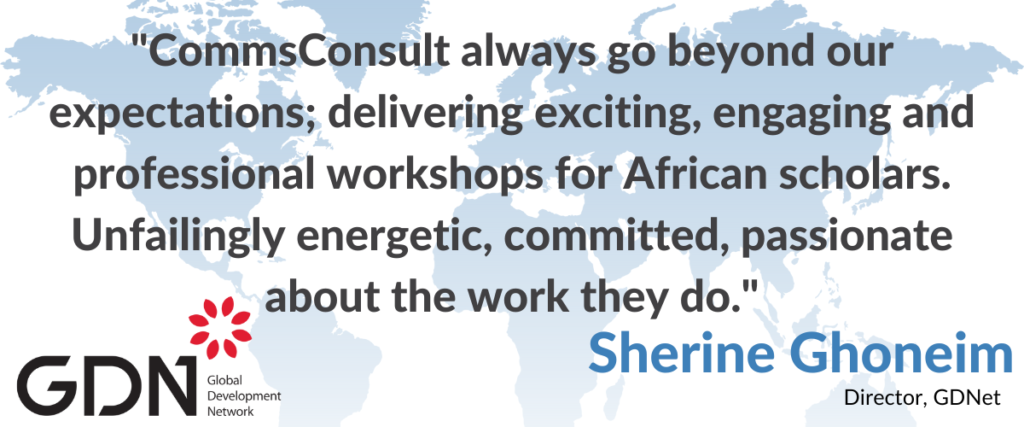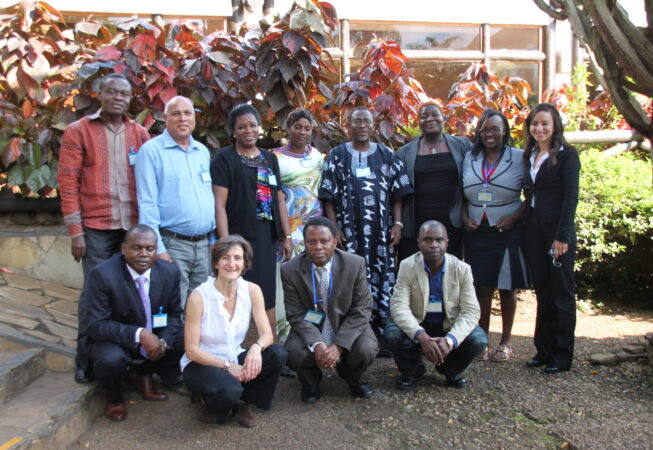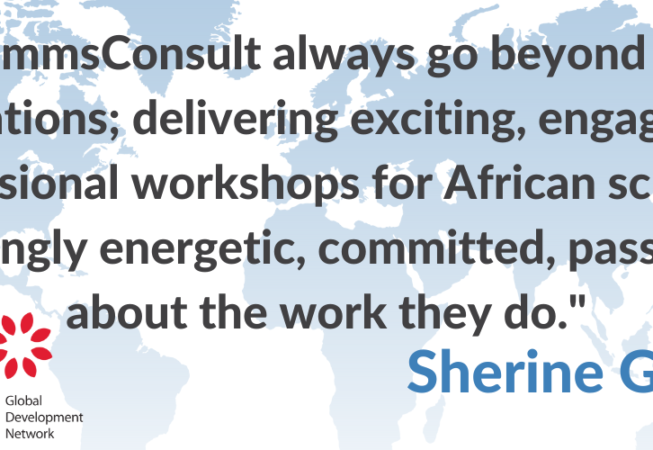Since 2010, the Global Development Network (GDNet) have employed CommsConsult to deliver twice-yearly policy engagement workshops in Nairobi, Kenya; Arusha, Tanzania; and Accra, Ghana for researchers from the African Economic Research Consortium (AERC). The workshops, each of which bring together around 20 participants from across Africa, build researchers’ policy engagement capacity, by informing them of the research to policy process and helping them develop a strategic approach to policy and media engagement.
The training utilises ‘policy panels’ made up of local or regional policy actors to whom participants can direct questions, and with whom they can explore appropriate engagement tactics. These panels are usually led by CommsConsult’s UK and Zimbabwe directors, Megan Lloyd-Laney and Farai Samhungu, and feature a number of experienced policymakers. Attendees are instructed on effective research communications techniques, and the dos and don’ts that affect research uptake.
The training can be divided into two core elements. The first teaches researchers to:
-
Consider the policy processes contextually specific to their countries
-
Consider the policymaking environment that target policymakers are working in
-
Craft effective messages
-
Identify relevant policy stakeholders through mapping tools
-
Effectively use Social Media/ ICT Tools. This includes harnessing Twitter to communicate with policymakers and how to set up blogs
The second element focuses on policy briefs. It gives researchers:
-
The key structural elements in an effective policy brief
-
The key areas that a brief’s headings should cover with respect to those elements
-
Information on how briefs should be shared
-
Space for peer learning and feedback with group work enabling the exchange of ideas around crafting effective briefs.
Over the past four years, feedback from the sessions has been very positive. One participant said that the training encouraged him to focus more on “research communication alongside actual research”, that he found the sessions “really helpful”, and that he felt “better equipped” when preparing policy briefs. He also planned to organise his own workshops and seminars to disseminate the working papers and policy briefs. Another enthusiastic attendee endeavoured to pass on his new skills to colleagues at his research institute, by creating and circulating his own training pamphlets. A third, comparing his performance at two presentations of papers held before and after the training, said he had “made a lot of progress” when writing abstracts and when laying out “the policy implication[s]” of his work.
Blogs on previous workshops:



